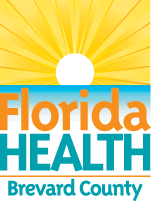It's a New Day in Public Health.
The Florida Department of Health works to protect, promote, and improve the health of all people in Florida through integrated state, county, and community efforts.
Florida Department of Health in Brevard County Issues Precautions for Food Safety
September 10, 2017

September 10, 2017
Florida Department of Health in Brevard County Issues Precautions for Food Safety
Contact:
ESF 8 Desk
(321) 637-6675
Rockledge, Fla. — In case of an electrical outage, take precautions to ensure your food is safe. The risk of food poisoning is heightened when refrigerators and ovens are inoperable. Discard any food that has been at room temperature for two hours or more, and any food that has an unusual odor, color or texture. Just remember –When in doubt, throw it out!
People can practice safe food handling and prevent food-borne illness by following these simple steps:
- Always keep a thermometer in your refrigerator. The temperature should read 41 degrees or lower.
- A full cooler will maintain its cold temperatures longer than one that is partially filled. Pack plenty of extra ice or freezer packs to insure a constant cold temperature. If available, 25 pounds of dry ice will keep a ten-cubic-foot freezer below freezing for 3-4 days. Use care when handling dry ice and
wear dry, heavy gloves to avoid injury. To avoid a health hazard, don't use dry ice in enclosed spaces, such as walk-in coolers or freezer. - Thawed food can usually be eaten if it is still "refrigerator cold."
- Eggs and other foods need to be stored in 41 degrees Fahrenheit (F) or slightly below. Do not eat foods that may have spoiled.
- Always wash your hands with soap and water that has been boiled or disinfected and cooled. Hands should be washed before preparing or eating food and after using the bathroom, changing a diaper, handling uncooked food, playing with a pet, handling garbage, tending to someone who is sick or injured, blowing your nose, coughing or sneezing, participating in flood cleanup activities, and handling articles contaminated with flood water or sewage.
- Don’t cross-contaminate. This happens when harmful bacteria is transferred to food from other foods, cutting boards or utensils. Never place any type of food on a plate that previously held raw meat, poultry or seafood.
- When grilling foods, preheat the coals on your grill for 20-30 minutes or until the coals are lightly coated with ash.
- Use a meat thermometer to insure that food reaches a safe internal temperature.
- Hamburgers and ground poultry should be cooked to 165 F.
- Poultry parts: 170 F.
- Roasts, steaks and other large cuts of beef: 145 F. (rare) and 160 F (medium).
- Fish should be cooked to 145 F, until the meat is opaque and flakes easily.
- Use sanitized food and water bowls for your pets. Be sure that pets do not drink from flood
contaminated surfaces.
For additional food safety information, call the toll-free USDA/FSIS Meat and Poultry Hotline at 1-888-674-6854. Food safety specialists (both English and Spanish speaking) are available from 10a.m. to 4 p.m. EDT on weekdays year-round.
For more information, please contact The Florida Department of Health in Brevard County atwww.brevardeh.com or visitwww.floridahealth.gov orwww.floridadisaster.org.




Connect with DOH